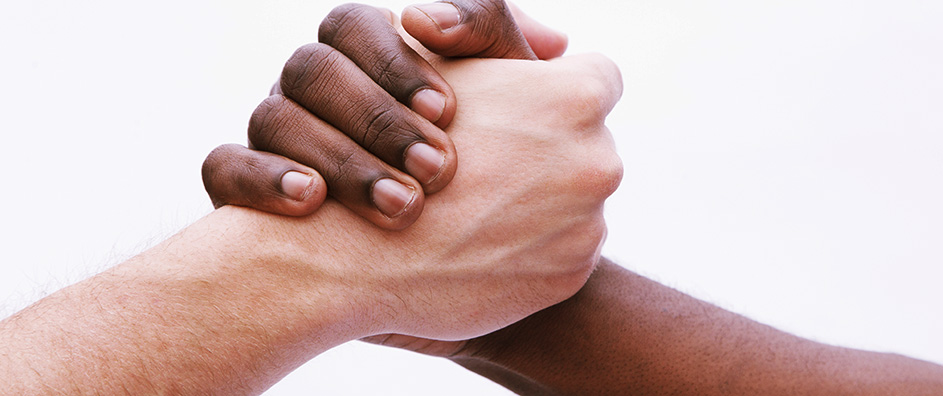The concept of truth as a unifying force is central to the teachings of the Bahá’í Faith. At its very core, this principle posits that the recognition of truth has the ability to bridge divides and foster understanding among diverse communities. Lies, conversely, engender dissonance and fragmentation, leading to societal discord. As individuals navigate an increasingly complex world, the Bahá’í teachings on truth serve as a guiding beacon, inviting reflection and introspection.
To comprehend the profundity of this teaching, it is essential to explore the implications of truth and lies in various realms of human experience. Truth acts not merely as a static concept; it is dynamic, evolving as humanity progresses. This fluid understanding insists that individuals are bound by a common quest for knowledge, wherein the pursuit of truth culminates in unity. Truth begets trust; it empowers interpersonal relationships and engenders social cohesion. When individuals prioritize truth over falsehood, they create an environment conducive to cooperation and collaboration.
On the contrary, lies dismantle bonds. When falsehood permeates discourse, it generates suspicion and alienation. The ramifications of deceit are manifold, infiltrating personal relationships, societal structures, and even global interactions. The Bahá’í teachings assert that lies not only distort reality but also obscure the pathways to understanding. This intricate interplay between truth and lies necessitates an examination of their broader impact on human interactions and societal progress.
In the realm of governance, the dichotomy of truth and lies becomes particularly pronounced. Governments founded on transparent practices and honest dialogue foster trust among their constituents. Such environments facilitate civic engagement and encourage collective participation in the decision-making processes. Conversely, regimes built upon lies and misinformation inevitably nurture discontent and disillusionment. The Bahá’í perspective emphasizes the importance of integrity within governance as a prerequisite for a harmonious society.
In the sphere of relationships, the implications are equally significant. The foundations of lasting partnerships are built on honesty and transparency. Disingenuous interactions, on the other hand, result in emotional disconnection and estrangement. The Bahá’í teachings advocate for the cultivation of honesty in all human interactions, proposing that such a commitment to truth creates an enduring bond that transcends superficial differences.
Moreover, truth serves as a catalyst for personal development. In a world rife with conflicting narratives and information overload, the ability to discern truth from falsehood is paramount. Individuals are encouraged to engage in self-reflection and critical thinking, promoting a culture of inquiry. The pursuit of truth is not merely an intellectual endeavor; it is a transformative journey that leads to enlightenment and self-actualization.
The significance of truth as a unifying force extends beyond individual relationships and institutions; it encompasses the entirety of the human experience. In multi-faceted societies, the recognition of shared truths can dissolve prejudices and biases. Whether through intercultural dialogue or communal initiatives, the Bahá’í teachings underscore that unity is attainable when individuals prioritize understanding and empathy over division.
This paradigm shift prompts a reevaluation of prevailing narratives. Instead of being shackled by misconceptions and stereotypes, individuals are encouraged to embrace diversity as a source of strength. The Bahá’í doctrine posits that through honest engagement with one another’s experiences and perspectives, individuals can derive a richer understanding of the complexities of life. Such exchanges unveil the myriad ways in which truth can manifest across various cultures, further enriching the human tapestry.
Furthermore, the teachings advocate for a collective commitment to the truth. This notion extends to institutions, communities, and societies as a whole. A collective acknowledgment of truth engenders accountability and upliftment. When communities unite in their pursuit of truth, they cultivate an atmosphere of mutual reliance and encouragement. This collaborative ethos is crucial in tackling sectarian divides and fostering global harmony.
As individuals seek to embody the principles that underpin the Bahá’í Faith, they are urged to reflect on their personal circumstances. Are their interactions defined by honesty? Are they unwavering in their pursuit of truth, even when faced with adversity? This introspective approach reinforces the understanding that the journey toward unity requires commitment and perseverance.
In conclusion, the teachings that “Truth Unifies; Lies Divide” encapsulate a profound truth intrinsic to the Bahá’í Faith. As we traverse the labyrinth of human experience, prioritizing truth emerges as a compelling impetus for fostering understanding and unity. The exploration of this concept reveals a transformative potential—shifting perspectives and encouraging inquiries that transcend cultural divides. As such, the commitment to truth is a vital undertaking for individuals and societies alike, propelling humanity toward a shared destiny of peace, collaboration, and growth.
